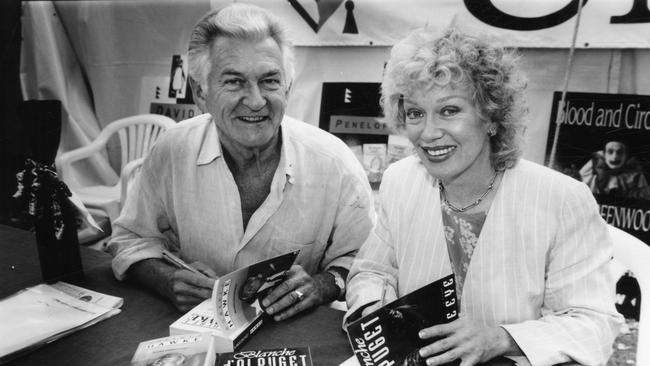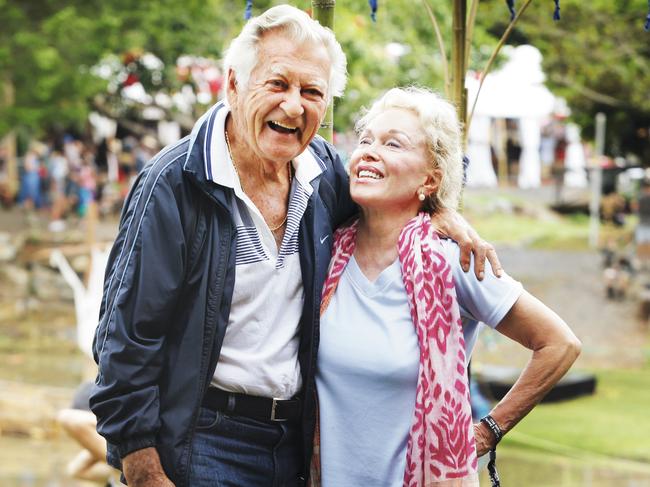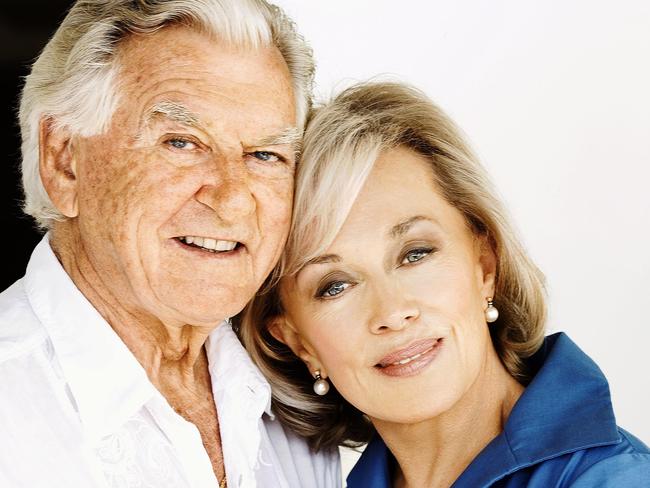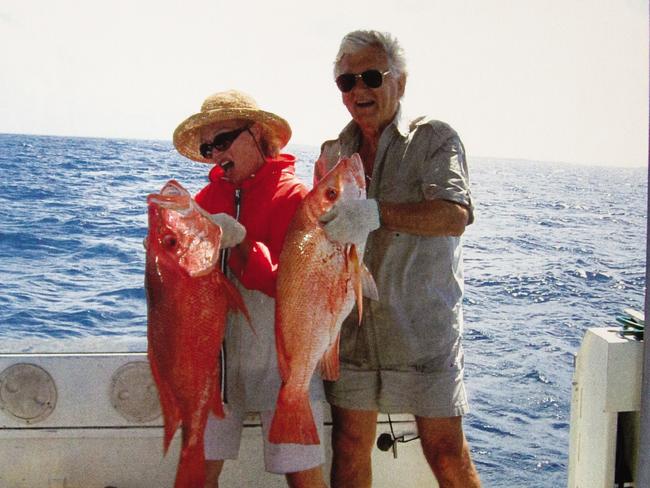Wooley: Scandals in politics come with a price
Paying for stories is something most journalists disapprove of but from time to time everyone gets caught up in it, laments Charles Wooley.

Opinion
Don't miss out on the headlines from Opinion. Followed categories will be added to My News.
The Higgins-Lehrmann defamation circus made the front page of every national newspaper this week. Who knows where it will end up. It has grown from a contest between the two original adversaries, neither of whom appeared to be particularly convincing nor even likeable folk, into a contest between two media giants and their expensive lawyers.
Whatever the outcome, for me the real takeaway is a commentary on Australia’s political class. Both Higgins and Lehrmann had political aspirations and could have, in the fullness of time, become members of parliament.
In both major parties we see the preferment of people who have grown up as party political advisers in the hothouse Canberra environment without ever having real-world experience.
Likewise, here in Tasmania, so many of our politicians have risen without trace and are simply creatures of their respective parties. Look them up.
They have never had a real job.
The truth is, even at the level of prime minister the same can be said. Anthony Albanese is a creature of Labor’s political class. Aside from a very brief stint in a bank he has always been employed by the machine, first as a cog and eventually as a leader. That may confer the necessary skills to rise to the top of the factional jungle, but having got there are those the skills required to run the nation?
So far, the debacles of his leadership suggest not.

Nor am I suggesting that the real-life experience of the former Queensland walloper Peter Dutton would produce a leader of the calibre of John Howard or Bob Hawke.
So far Dutto is the only thing that might allow Albo to survive the next election.
The Australian media landscape is a small one. As a journalist in a fairly restricted workplace, I have worked for various outlets from the ABC to News Corp and channels 9 and 7 and some smaller outfits long gone and forgotten.
But that’s enough experience working both sides of the narrow street for me to know that in the current lawyer’s feast in the Federal Court, in Sydney, I should avoid rushing to judgment.
My advice to myself is to “let he who is without sin cast the first stone”. I don’t always take good advice but this week I will. So, instead I will tell a tale from the roaring days of television and my reluctant complicity in what was called “chequebook journalism”.
Paying for stories is something most journalists disapprove of, but from time to time everyone gets caught up in it.
Come with me down the time tunnel to 1995 and to Scotland Island, an enticing piece of real estate where the far northern beaches of Sydney meet the sparkling subtropical waters of glorious Pittwater.

A great scandal had broken, and 60 Minutes had the exclusive. Bob Hawke at 64, back then by many accounts the greatest prime minister in living memory (certainly by his own account) had separated from Hazel his popular wife of 40 years and fallen in love with his beautiful biographer, Blanche d’Alpuget, then aged 50.
The nation was outraged but Bob was too much in love to care.
It was my unwished-for introduction to the vulgarities of immensely popular tabloid television. But the low point for me was the highlight of my producer’s career. She was charming, disarming and salacious in equal measure. She wanted me to determine which came first: the separation or the love affair.
Bob was sitting on the end of the jetty wearing only budgie smugglers. Blanche was sensuously rubbing sun lotion onto his body.
And I was backing out like a yabby.
I told my producer: “Oh shit, do we really need to know how it began? Isn’t being in love enough? God, I hate this job sometimes.”
“Don’t go all ABC on me,” she said.
This is commercial TV. We don’t make “television programs”.
She drew those inverted commas derisively in the warm blue air and smiled facetiously: “We sell Toyotas.”

To that end things had gone well. 60 Minutes had stolen the march, outbidding the rest of the media. I was never told the sum, but I think it was at least two or three hundred thousand dollars and the cost was shared with Woman’s Weekly.
The rest of the media was furious. Clearly everyone wanted the story, but we had it.
Now our competitors could only rage that Bob’s infidelity should not be rewarded, even though so many of them had also been offering cash.
It was arrant hypocrisy of course, but in a way they were now effectively leveraging the natural decency of everyday Australians.
The mob didn’t like what we were doing.
Had the financial inducement not been made public Channel 9 could have expected two million viewers.
As it was, the story attracted much less than half that.
Nine programmers couldn’t believe it. The Bob and Blanche show had been on the front pages for two weeks.
The audience hadn’t turned off. They just hadn’t turned on in the first place. What had gone wrong?

Here is the sting in this salutary tale.
Television ratings were determined by so called “black boxes” fitted at random to a small selection of television sets around the capital cities.
Back then in Melbourne and Sydney there were only 450 of them spread across each of those major television markets.
Each black box represented hundreds of thousands of viewers. People with black boxes were only too well aware of their power to make or break programs.
Just how much power was revealed by a telephone call from a viewer who told us that his neighbours had knocked on his door to ask would it be OK if they watched 60 Minutes at his place tonight?
Why?
Because they had a black box rating monitor on their television set and had decided not to watch this week’s 60 Minutes at home, as a protest.
Which at least suggested that the viewers were still there but unrecorded. At least my producer thought so.
“Don’t worry,” she said. “It looks like we still sold a load a shit-load of Toyotas.”
Charles Wooley is a Tasmanian-based journalist





